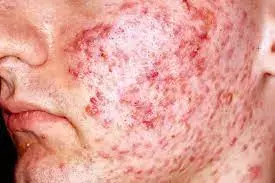- Home
- Medical news & Guidelines
- Anesthesiology
- Cardiology and CTVS
- Critical Care
- Dentistry
- Dermatology
- Diabetes and Endocrinology
- ENT
- Gastroenterology
- Medicine
- Nephrology
- Neurology
- Obstretics-Gynaecology
- Oncology
- Ophthalmology
- Orthopaedics
- Pediatrics-Neonatology
- Psychiatry
- Pulmonology
- Radiology
- Surgery
- Urology
- Laboratory Medicine
- Diet
- Nursing
- Paramedical
- Physiotherapy
- Health news
- Fact Check
- Bone Health Fact Check
- Brain Health Fact Check
- Cancer Related Fact Check
- Child Care Fact Check
- Dental and oral health fact check
- Diabetes and metabolic health fact check
- Diet and Nutrition Fact Check
- Eye and ENT Care Fact Check
- Fitness fact check
- Gut health fact check
- Heart health fact check
- Kidney health fact check
- Medical education fact check
- Men's health fact check
- Respiratory fact check
- Skin and hair care fact check
- Vaccine and Immunization fact check
- Women's health fact check
- AYUSH
- State News
- Andaman and Nicobar Islands
- Andhra Pradesh
- Arunachal Pradesh
- Assam
- Bihar
- Chandigarh
- Chattisgarh
- Dadra and Nagar Haveli
- Daman and Diu
- Delhi
- Goa
- Gujarat
- Haryana
- Himachal Pradesh
- Jammu & Kashmir
- Jharkhand
- Karnataka
- Kerala
- Ladakh
- Lakshadweep
- Madhya Pradesh
- Maharashtra
- Manipur
- Meghalaya
- Mizoram
- Nagaland
- Odisha
- Puducherry
- Punjab
- Rajasthan
- Sikkim
- Tamil Nadu
- Telangana
- Tripura
- Uttar Pradesh
- Uttrakhand
- West Bengal
- Medical Education
- Industry
Intense Pulsed Light and Minocycline Combo better than Monotherapy in Acne Vulgaris

According to a recent study published in the Journal of Cosmetic Dermatology, intense Pulsed Light and Minocycline combination is Superior to Monotherapy in Acne Vulgaris.
It has been a long-term debate over the concomitant treatment of inflammatory acne vulgaris using Intense Pulsed Light (IPL) and minocycline due to the photosensitivity of minocycline. Researchers aimed to evaluate the safety and efficiency of IPL combined with minocycline in treating acne vulgaris in a randomized trial. A total of 40 patients were enrolled and randomly assigned into two groups, either given minocycline (100 mg per day) for 8 weeks with IPL treatments for three times at the weeks of 0, 4, and 8, or the same dosage of minocycline only. The evaluations for inflammatory lesion count, Investigator Global Assessment of Acne (IGA), erythema and purpura indexes were taken before treatment and at the weeks of 4, 8, and 16.
Results:
There were significant improvements in inflammatory lesion count, IGA scores, and purpura index in both groups as compared with the baseline at the week of 16 (p < 0.02). The concomitant therapy, but not minocycline only, significantly improved the erythema index (p=0.40) at the 16th week as compared with the baseline. The group with combined treatment showed significantly continuous improvements in inflammatory lesion counts (p < 0.04) and IGA scores (p ≤ 0.02) at the weeks 4, 8, and 16 as compared with the group given minocycline only. No severe adverse effects were observed during the trial.
Thus, IPL in combination with minocycline shows a better clinical efficacy for treating inflammatory acne vulgaris than minocycline alone, and it is safe.
Reference:
A Randomized, Controlled Trial of Intense Pulsed Light in combination with Minocycline Hydrochloride for the Treatment of Inflammatory Acne Vulgaris by Huanhuan Qu et al. published in the Journal of Cosmetic Dermatology
https://doi.org/10.1111/jocd.15046
Keywords:
Randomized, Controlled Trial, Intense, Pulsed, Light, combination, Minocycline, Hydrochloride, Treatment, Inflammatory, Acne, Vulgaris, Huanhuan Qu, Yuanli Wang, Feng Yang, Gang Wang, Lin Gao, Kai Li, Journal of Cosmetic Dermatology
Dr. Shravani Dali has completed her BDS from Pravara institute of medical sciences, loni. Following which she extensively worked in the healthcare sector for 2+ years. She has been actively involved in writing blogs in field of health and wellness. Currently she is pursuing her Masters of public health-health administration from Tata institute of social sciences. She can be contacted at editorial@medicaldialogues.in.
Dr Kamal Kant Kohli-MBBS, DTCD- a chest specialist with more than 30 years of practice and a flair for writing clinical articles, Dr Kamal Kant Kohli joined Medical Dialogues as a Chief Editor of Medical News. Besides writing articles, as an editor, he proofreads and verifies all the medical content published on Medical Dialogues including those coming from journals, studies,medical conferences,guidelines etc. Email: drkohli@medicaldialogues.in. Contact no. 011-43720751


